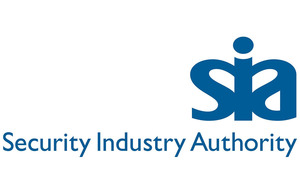York company director must pay £40,000 in proceeds of crime
A court has ordered a former security company director who knowingly worked without a licence to pay £40,000 as the proceeds of crime.

Last Friday, 11 June 2021, Christopher Downes appeared at York Crown Court and was ordered to pay £20,000 within six weeks. He must also pay another £20,000 within six months or he faces 18 months in prison. The court’s Proceeds of Crime Act (POCA) order follows Downes’ conviction at York Crown Court on 11 February 2021. The court gave Downes a 60-hour community order, which he must complete within 18 months. He was also required to pay prosecution costs of £2,735 within six weeks plus a victim surcharge.
The court heard on Friday that Downes had received a criminal benefit of £40,000.
For several years, Downes was a director of F1 Security Services Ltd in York. He was identified by the Security Industry Authority (SIA) investigators as working without a licence. It is a legal requirement that a director of a security company should be in possession of a valid SIA licence.
On 22 April 2020 Downes applied for an SIA licence. The following week, on 28 April 2020 he resigned his directorship from F1 Security Ltd, however the investigation had identified his illegal directorship. On 11 September 2020, Downes was formally interviewed by the SIA’s investigation team. He made a full and frank admission to working as a director without any type of SIA licence and failing to notify the SIA within a reasonable time of his previous conviction.
The SIA investigation identified that Downes’ previous SIA licence had expired on 24 September 2017. From that time until April 2020 he continued to direct the company while unlicensed. He supplied security industry services to a number of clients, and managed licensed security operatives who conducted licensable activity until he resigned his directorship.
In addition, Downes had received a criminal conviction at York Crown Court on 3 November 2014 which he failed to disclose to the SIA.
Nathan Salmon, the SIA’s Criminal Investigations Manager, said:
Downes profited significantly from working illegally in the private security industry. His actions demonstrated that he was not fit and proper to work in the industry. The court order will help to redress the imbalance that operating illegally has on the private security market. The confiscation demonstrates that crime does not pay. Downes has a criminal record and a significant financial penalty to pay.
Notes to editors:
- The Proceeds of Crime Act 2002 (POCA) sets out the legislative scheme for the recovery of criminal assets, with criminal confiscation being the most commonly used power. Confiscation occurs after a conviction has taken place.
- If a person has a POCA Order against them they have to pay it, regardless of whether they serve a jail sentence
- By law, security operatives working under contract must hold and display a valid SIA licence
- Read about SIA enforcement and penalties
- The offences relating to the Private Security Industry Act (2001) mentioned above are:
- Section 3 (working without a licence)
- Section 5 (deploying unlicensed guards)
- Read the Private Security Industry Act 2001
Further information:
- The Security Industry Authority is the organisation responsible for regulating the private security industry in the United Kingdom, reporting to the Home Secretary under the terms of the Private Security Industry Act 2001. Our main duties are: the compulsory licensing of individuals undertaking designated activities; and managing the voluntary Approved Contractor Scheme.
- For further information about the Security Industry Authority visit www.gov.uk/sia. The SIA is also on Facebook (Security Industry Authority) and Twitter (SIAuk).